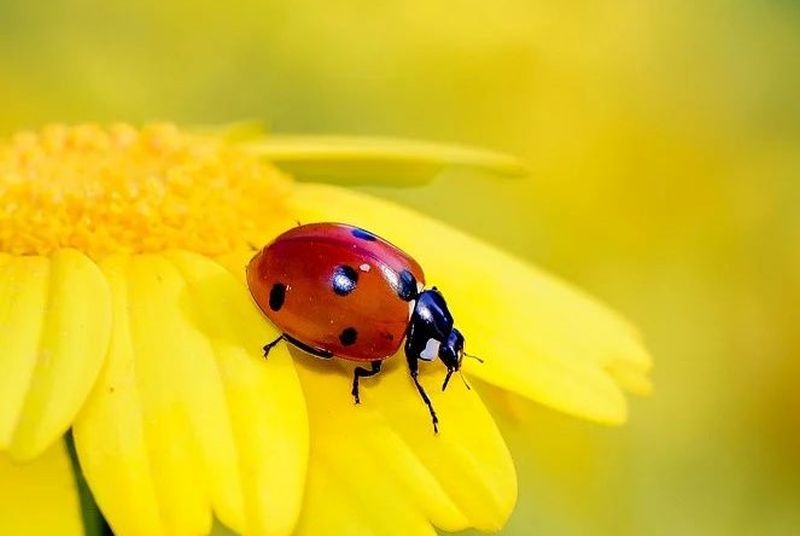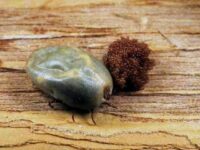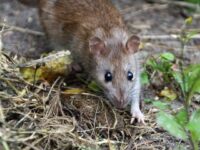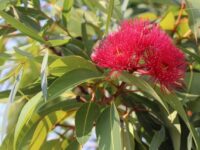Insects that feed on desirable plants or transmit diseases are often considered pests. But insects are not really pests, they all play their part in the natural balance. Insects also occupy a lot of niches in our gardens and fulfill a great many essential tasks. They pollinate fruits, flowers, and vegetables, while others prey on insects we find annoying or that eat what we plant.
Attracting these beneficial insects into your garden can be one of the best, cheapest, and most environmentally friendly methods to reduce the harmful effects of unwanted pests. The protection of beneficial insects and growing food plants that provide nectar and pollen are basic requirements for organic gardening and an excellent initiative for the development of ecological diversity in your garden.
Beneficial insects can help reduce or eliminate the use of chemical pesticides and insecticides and their harmful side effects. After all, you and your children want to live in a healthy, non-toxic environment and eat healthy homegrown food.
Types of Beneficial Insects
There are three types of beneficial insects:
- Predators
- Pollinators
- Parasitoids
Predatory insects
They eat other insects. Some are predators in adulthood and in their immature form (larvae or nymphs), some are predators only in the immature stage, and some only in adulthood. Many predatory insects feed only on certain types of insects (for example, beetles feed mainly on aphids), while others feed on a wide variety of insects.
Common predatory garden insects include ants, mantis, lacewing, ground beetles, tiny pirate critters, bugs, fly larvae, and snake flies, for example. Spiders, predatory mites, and millipedes are also essential predators in a garden ecosystem.
Pollinating insects
This includes mainly different types of bees, butterflies, and flies which pollinate flowers, crops, and wild plants. The most common are insects such as bees, bumblebees, butterflies, moths, flies, wasps, beetles, weevils, and even ants and male mosquitoes.
Pollinators are among the most important animal species because they play an invaluable role in the production of our food crops.
Parasitoids
These insects live on a host insect, feed on the host, and often kill it during the process.
Most parasitoids are wasps or small stinging flies that lay their eggs in or on specific host insects. The eggs hatch and the larvae feed in or on the hosts. These insects are not easy to see, but research shows that they have a major impact on insect pest populations.
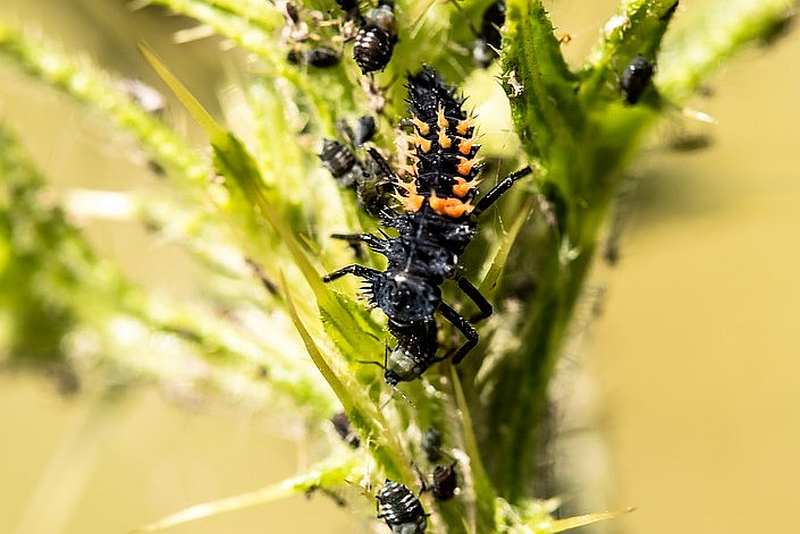
Attracting Beneficial Insects to your garden
Like all living creatures, useful insects have a basic need for water, food, and shelter. By providing these things, your garden will be a welcoming home for them.
A diversity of plants will attract a wide range of insects. Many benefits appear in the garden before pests and they need alternative food sources like pollen and nectar if they want to stay.
- Early flowering plants (Blooming plants), especially those with small flowers like alyssum or biennials like carrots or parsley that have been left in bloom, will help attract benefits to your garden in the spring.
- Later, they will be drawn to sunflower, thistle, yarrow, goldenrod, Queen Anne’s lace, and flowering herbs like lavender, mint, sage, dill, fennel, and lemon balm.
Remember that if you use chemical pesticides to control insects, you will kill good and bad insects. Even so-called “natural” pesticides like Pyrethrum and Rotenone kill many useful insects.
Protecting Beneficial insects
All beneficial insects are susceptible to insecticides. Most insecticides available to home gardeners are broad-spectrum, which means that they kill a wide range of insects, including beneficial insects. If you decide to use an insecticide, take the following steps to protect beneficial insects.
- Choose the least toxic pesticide that will be effective using integrated pest management.
- Spray early in the day when many insects are less active.
- Spot spray the infected plants only.
- Don’t spray on the bloom.
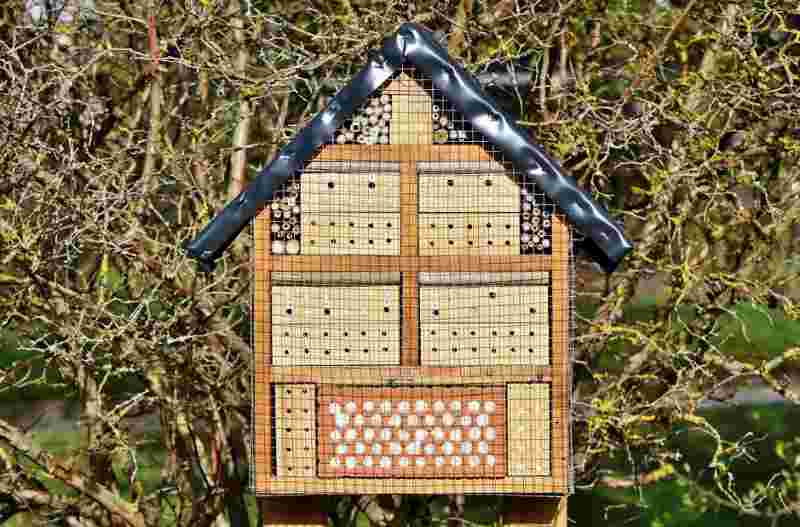
Habitat Creation For Beneficial Insects
Invite beneficial insects to your garden by providing food. Pollinators are attracted to a wide variety of flowering plants. Many adult predators and parasitoids feed on nectar and pollen in addition to pests. Most are quite small and can reach nectar and pollen only from small flowers. Plants that attract them are sometimes called insecticidal plants.
By dispersing insecticidal plants in your garden and landscape, you can attract useful insects. Or reserve a garden bed or a border. Insect seed mixtures are available.
Many flightless predators, such as beetles and spiders, need a place to hide from their enemies. Thick ground cover and mulch, such as bark dust and straw, provide this habitat. Unfortunately, this is also a habitat where ticks like to hide.
Useful insects also need water. If you are not using aerial irrigation, water your plants slightly early in the morning to provide water.
Why Beneficial Insects Aid Organic Garden?
Modern conveniences make it very easy to forget that we are all part of nature, not separated from nature. Enter any garden center and you will find a wide selection of insecticides with names that speak directly to our desire to wage a perpetual war with the hordes of strange and terrifying creatures that live in our courtyards.
It seems that people are so bothered by insects that they don’t want to give them a place in their garden. A lot of money is quickly paid for cancer-causing chemicals, and substances are sprayed in the yard and garden that destroy the natural balance in landscapes in which your children and pets play.
As we all know, insecticides also kill beneficial insects and so no insect can survive in a treated garden. Organic gardens are safe havens for insects because they provide food and shelter.
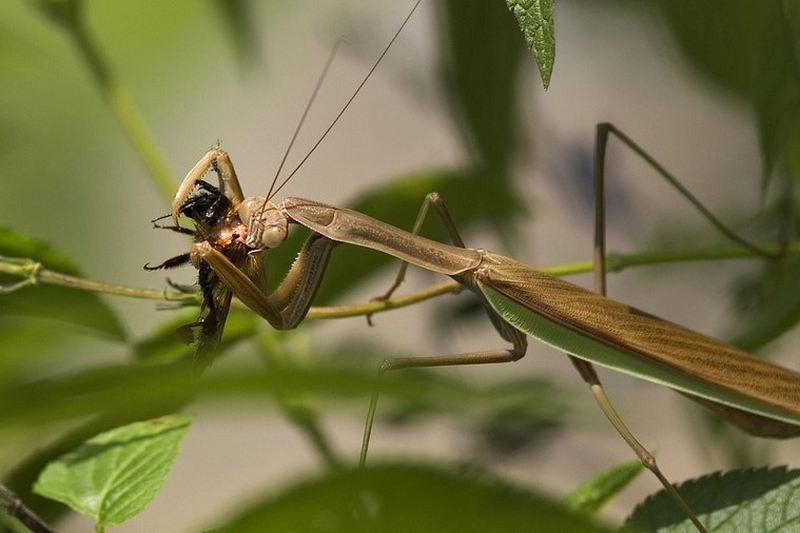
Ensuring Ecological Balance with Insects
By fighting and eliminating unwanted pests in the yard and garden, hobby gardeners often destroy many types of useful insects, as there is insufficient knowledge about the natural balance. In the growing interest in maintaining biodiversity and ecological balance, measures must be taken to protect and let beneficial insects survive in the environment and especially in our gardens. Attracting useful insects is part of natural pest control.
In order to attract useful insects in gardens and to minimize damage caused by aphids, caterpillars, beetles, and other pests, the cultivation of many different plants and flowers is the first step in a natural garden. Planting food plants for insects that provide pollen and nectar is critical in organic gardening and for the increase of ecological diversity. Unwanted insects can be controlled by such environmentally friendly methods instead of chemical insecticides.
Beneficial Insects You Can Buy
Here is a list of the top ten beneficial garden insects, indicating the category to which each belongs:
- Bees that pollinate flowers.
- Ladybirds, which devour aphids, mites, small bugs, etc. Ladybird larvae also have a voracious appetite for aphids.
- Ground beetles of various types feed on a large number of insects, usually at night. Most are dark brown and shiny.
- Green lacewings, their larvae are also called aphid lions, feed on many insect pests as well as nymphs and moth eggs.
- Beneficial Nematodes, tiny roundworms that infest various kinds of insects and ticks and kill them.
- Antlions, or doodlebugs, are the larvae of a light-winged insect and are related to green wings. They make funnel-shaped traps in the ground where insects (their prey) fall, that is when the antlions move.
- Dragonflies are commonly seen around the water, especially in garden ponds and streams. Their main food source appears to be mosquitoes and flies, which are more of a threat to humans than to plants.
- Wasps of various types, from hornets to small insects that you probably won’t even notice, eat spiders. Some are parasites that lay their eggs on a host insect, and when the eggs hatch, the larvae eat their host.
- Syrphid flies, also called flower flies or floating flies, appear to have small yellow jackets that make them easy to identify (often confuses with wasps). Their larvae feed on aphids, young termites, ants, and even bees.
- The praying mantis eats grasshoppers, flies, bees, crickets, and wasps, and even from its own species.
In addition to these beneficial insects, spiders (which are eight-legged arthropods rather than insects) are excellent predators in the garden because they eat many different types of insects. Predatory mites, which are spider-like creatures, also consume annoying insects.
Insect run the World
Insects have an indispensable role in the ecosystem, in the propagation of plants, and in the fertility of the soil. The pollinators among insects are of the greatest importance and indispensable too. Without them, even the most modern agriculture would not function. Insects pollinate the majority of our food plants and help to supply humans with food.
Without insects, terrestrial and freshwater ecosystems would not function. Their decline, the Great Insect Dying in recent years is one of the biggest man-made environmental disasters that threaten our future.
More to Read About Insects:
The Great Insect Dying: Monagbay.org
Plummeting insect numbers ‘threaten collapse of nature’:theguardian.com
